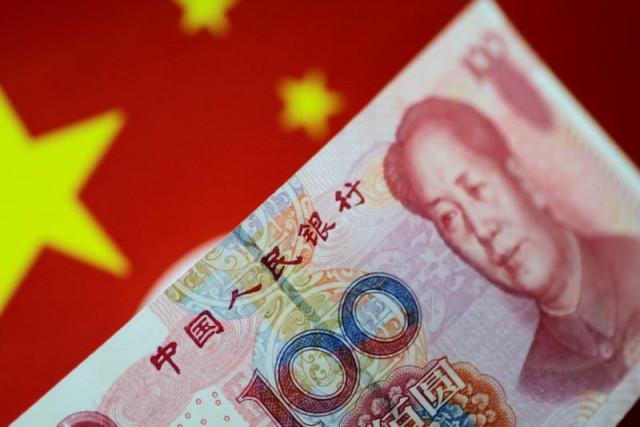SBP says Chinese yuan acceptable for bilateral trade, investment
Foresees yuan-denominated transactions with China to increase significantly

PHOTO: REUTERS
As per current foreign exchange regulations, CNY is an approved foreign currency for denominating foreign currency transactions in Pakistan. “In terms of regulations in Pakistan, CNY is at par with other international currencies such as the dollar, euro and Japanese yen etc,” according to a SBP statement.
The SBP, in its capacity as the policymaker of financial and currency markets, has taken comprehensive policy-related measures to ensure that imports, exports and financing transactions can be denominated in CNY.
The central bank has already put in place the required regulatory framework which facilitates use of CNY in trade and investment transactions such as opening of letters of credit (L/C) and availing financing facilities in CNY.
It may be mentioned here that after signing a Currency Swap Agreement with People’s Bank of China (PBoC), SBP had taken a series of steps to promote use of CNY in Pakistan for bilateral trade and investment with China. SBP allowed banks to accept CNY deposits and give CNY trade loans, according to the press release.
Considering the recent local and global economic developments, particularly with the growing size of trade with and investment from China under CPEC, SBP foresees that CNY-denominated trade with China will increase significantly, going forward; and will yield long term benefits for both countries.
Published in The Express Tribune, January 3rd, 2018.
Like Business on Facebook, follow @TribuneBiz on Twitter to stay informed and join in the conversation.


















COMMENTS
Comments are moderated and generally will be posted if they are on-topic and not abusive.
For more information, please see our Comments FAQ